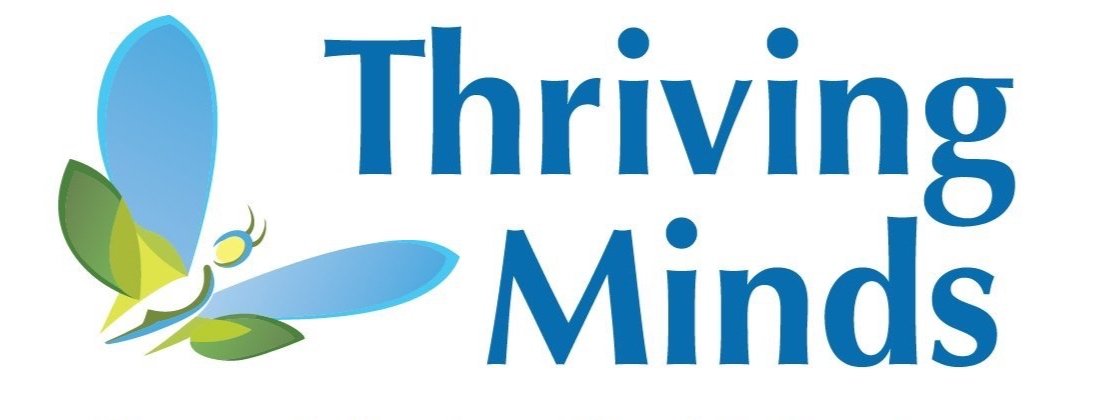If you work with children and adolescents, you know that supporting mental health in an educational setting can be complex. Between Individualized Education Programs (IEPs), Section 504 Plans, and a shifting legal landscape, these systems can feel overwhelming. This month’s newsletter aims to break down key aspects of the laws that contribute to these services and provide you with the tools you need to advocate effectively for your clients and students.
Read MoreWe’ve all encountered the question: Is it time to refer this client out? It’s never an easy decision, and it comes with ethical, practical, and emotional considerations. We want to provide the best possible care, but sometimes that means helping a client transition to a different provider or a higher level of support. So, this month, we’re diving into when to refer out, how to do it ethically, how to collaborate with schools, and ways to support clients during long wait times.
Read MoreIf you work with children and adolescents struggling with anxiety disorders, you know how crucial it is to keep refining your approach to treatment. Today, we want to highlight the Inhibitory Learning Model (ILM) — an evidence-based framework that offers a nuanced understanding of exposure therapy and its effectiveness. Traditionally, exposure therapy has been viewed through the lens of fear extinction, where the goal is to reduce a young person’s fear response over repeated exposure to a feared stimulus. However, the research has not always supported this perspective on why ERP is effective. Enter the Inhibitory Learning Model — a paradigm shift that focuses on helping clients develop new, non-fear-based associations with anxiety-provoking stimuli.
Read MoreIn recent years, mindfulness has become a common tool in treating children with mental health disorders like anxiety, ADHD, and depression. Mindfulness is used in various therapeutic settings, often as part of a broader treatment plan that may also include cognitive-behavioral therapy (CBT) or family counseling.
Read MoreRecently, there’s been a growing focus on parent training and interventions aimed at supporting parents in the fields of psychology and education. Research keeps showing us just how important parents are in shaping their children’s behavior, emotions, and academic success. Effective parent training programs not only enhance parenting skills but also help us tackle behavioral challenges, anxiety disorders, and boost academic performance. In this article, we will discuss the ways in which professionals are using parent training to support children and adolescents.
Read MoreThriving Minds’ online workshops help professionals master selective mutism (SM) treatment. Led by experts, these flexible sessions offer practical strategies to support children in overcoming SM. Ready to level up your skills? Enroll today!
Supporting students with ADHD involves creating a structured and adaptable classroom environment. Learn strategies like behavior management, personalized learning, and accommodations that help professionals support students with ADHD to thrive in school and life.
Read MoreParental involvement is key to student success, positively impacting academics, behavior, and social skills. This blog explores the benefits of strong school-parent collaboration and offers practical strategies to build effective partnerships. At Thriving Minds, we empower parents and professionals to create a supportive environment for children’s growth.
Read MoreExplore effective strategies for treating Selective Mutism (SM) and discover how collaboration between specialists, parents, and educators can support children. Enhance your expertise with insights and resources from Thriving Minds.
Read MoreAttention-Deficit/Hyperactivity Disorder (ADHD) is one of the most common neurodevelopmental disorders among children, leading to widespread interest in treatment options. However, amidst this interest lies a landscape filled with treatments that lack solid research backing or could potentially be harmful. As mental health professionals and consumers, it is critical to distinguish between evidence-based practices and those that are ineffective or could lead to negative outcomes. In this article, we explore some controversial treatments for ADHD in children and provide guidance on why these should be approached “with caution.”
Read MoreStarting a private practice in child and adolescent psychology is rewarding, blending therapeutic fulfillment with business independence. This guide helps navigate establishing a successful practice, from crafting a tailored therapeutic environment to managing business challenges. Key benefits include professional autonomy, specialization, and direct client impact. However, challenges like financial risk, isolation, and balancing personal and professional life must be managed. With careful planning and continuous growth, your practice can thrive, making a significant impact on young lives.
Read MoreStaying ahead of scientific advancements and new therapeutic techniques is a commitment to excellence in pediatric sleep therapy. As dedicated professionals, continuous learning is essential. Online workshops offer a dynamic space to learn, connect, and stay current with innovations in sleep therapy. These workshops provide flexibility, enabling you to expand your knowledge and refine your skills without disrupting your practice. Engaging in these interactive sessions immerses you in the latest research and trends, making them an invaluable resource for ongoing professional development. Embrace these opportunities to elevate your expertise and enhance patient care. At Thriving Minds, we support your journey with professional resources to improve patient outcomes and practice growth.
Read MoreIn the complex landscape of child mental health, the bridge between professionals and parents is pivotal. Effective communication not only enhances therapeutic outcomes but also ensures a cohesive approach to supporting a child’s educational and emotional needs. This article delves into techniques that foster open, effective dialogue between educators, therapists, and parents.
Read MoreAnxiety can be a challenging emotion for children and adolescents to navigate, often leading to a cycle of avoidance that can impact their daily lives and academic success. In school or clinical settings, recognizing and addressing this cycle is crucial for providing effective support and intervention.
Read MoreThriving Minds' sleep guide for children offers advanced interventions to address common sleep disorders. It emphasizes the importance of quality sleep for cognitive, emotional, and physical health, providing tips for creating effective bedtime routines.
Read MoreSelective mutism is a severe anxiety disorder visible in children who speak comfortably at home but not in social settings like school. It often coexists with other anxiety disorders, requiring specialized, multidisciplinary treatment to help each child effectively find their voice.
Read MoreClinical supervision ensures high standards in mental health care, guiding new therapists to improve skills, make ethical decisions, and enhance patient safety. Thriving Minds champions ongoing learning and expert-led sessions to bolster professional growth
Read MoreADHD affects millions of children globally, impacting academics and social lives. This guide offers insights, diagnosis strategies, treatment options, and professional tips, empowering professionals to support children effectively.
Read MoreSelective mutism intertwines genetics and brain science, especially the amygdala's role, highlighting children's situational speech inhibition due to an exaggerated fear response. At Thriving Minds, targeted therapies address these biological and environmental factors.
Read MoreDiscover strategies to assist children facing school refusal through insights and interventions shared by Thriving Minds Behavioral Health. Understand root causes, identify types of refusal, and explore ways schools and families can support affected children effectively.
Read More




















